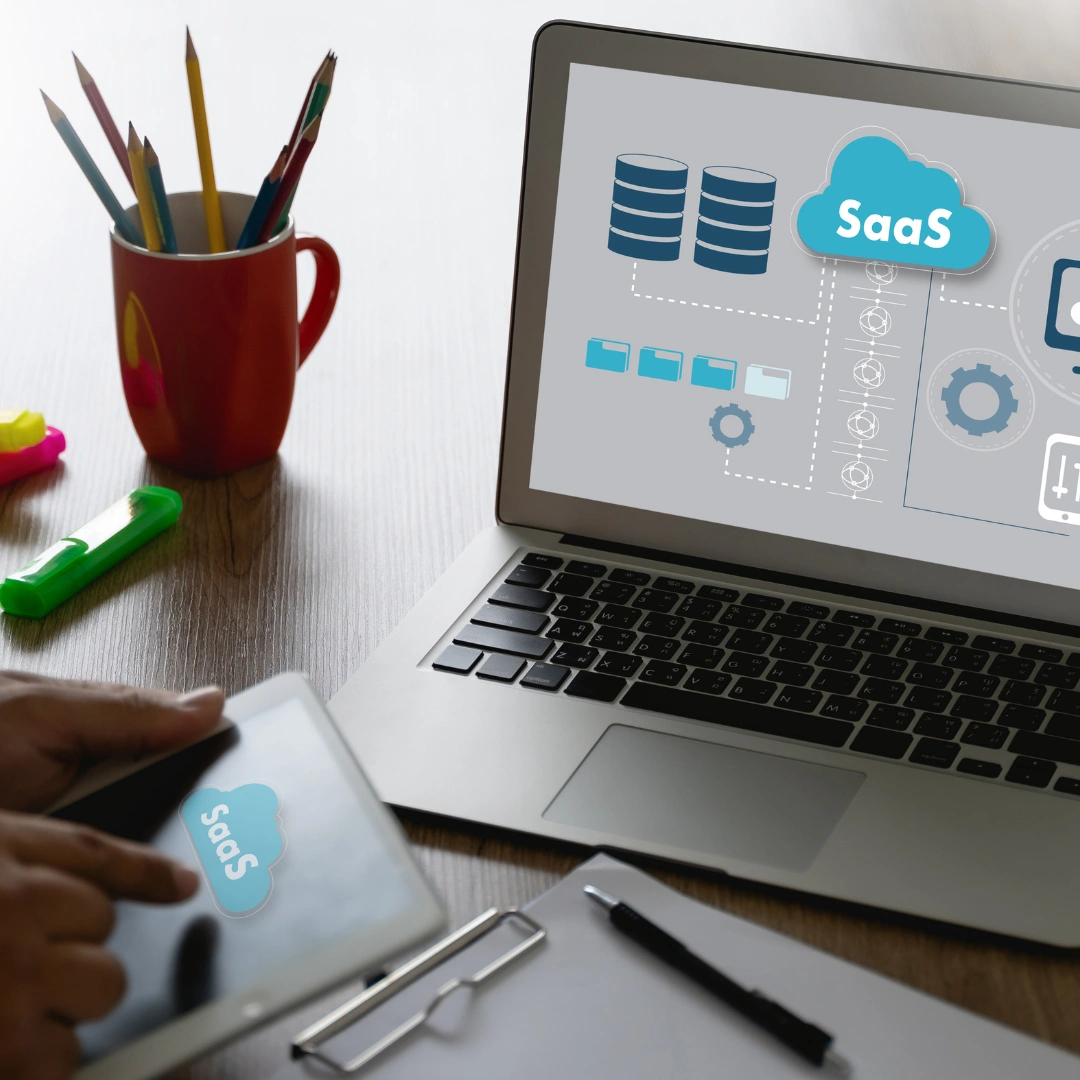
10 Best CRM for SaaS Companies in 2023
 Cecily Giancaterino
Cecily Giancaterino

Sep 21, 2023
∙
15 min read

CRM
For SaaS companies, growth requires happy customers and low churn rates. To achieve those goals, SaaS companies must constantly work to improve their customer onboarding workflows, product functionality, and sales processes.
Customer relationship management (CRM) software simplifies this work, enabling you to manage customer relationships, automate processes, and uncover useful insights about what customers want from your products. The result? Reduced churn, a superior customer experience, and loads of business growth.
If you're ready to implement a SaaS CRM within your company, we're here to help. In this guide, we discuss 10 of the best CRMs for SaaS, so you can make the best choice.
Before we dive in, here are the key things you should know about CRMs for SaaS companies:
- CRMs are customer relationship management systems that help SaaS companies stay on top of their online acquisition strategies.
- CRM software helps sales and marketing teams retain existing SaaS customers through contact management and other features.
- SaaS companies with subscription-based pricing models need CRMs to keep track of customers and retain them for the long haul.
- When looking for CRMs for your SaaS company, you must consider each platform's features, pricing, and customer support options.
- Some of the top CRMs for SaaS include FiveCRM, Microsoft Dynamics 365, SugarCRM, Salesforce, Pipedrive, monday sales CRM, Zoho CRM, Insightly, Nimble, and Netsuite CRM.
Table of Contents:
If you're working in SaaS and looking for the best SaaS CRMs, here's a list for you:
- FiveCRM
- Microsoft Dynamics 365
- SugarCRM
- Salesforce
- Pipedrive
- monday sales CRM
- Zoho CRM
- Insightly
- Nimble
- Oracle Netsuite CRM
What Is a SaaS CRM?
Software-as-a-Service (SaaS) is a business model that offers software applications over the Internet. Users can access SaaS products through web browsers or an app. Because of this delivery model, SaaS companies typically acquire new customers online via paid search, content marketing, social media campaigns, email marketing, and more.
CRMs are customer relationship management systems that help SaaS companies stay on top of their online acquisition strategies. These tools carry features that streamline customer interactions, manage lead pipelines, and track Key Performance Indicators (KPIs).
CRM software also fuels SaaS growth-oriented strategies. They help sales and marketing teams retain existing customers by improving their experience. This then helps SaaS teams reduce churn rates and increase revenue.
Do SaaS Companies Need CRMs?
Because of the SaaS delivery model, customer acquisition for SaaS products typically lies online. But acquiring customers is only half of the equation. The other half lies in retaining them.
The subscription-based model for these services means customers can cancel their subscriptions anytime. Because of this, the average churn rate for SaaS products is around 14%. It can be even higher for larger enterprises.
A CRM helps SaaS companies stay on top of online acquisition and build customer relationships to reduce churn. CRM platforms also help identify potential churners and track customer interactions, enabling SaaS companies to provide personalized services and customer support.
This personalized touch can go a long way in improving customer satisfaction and building brand loyalty. So, in short, SaaS companies do need CRMs to keep track of customers and retain them for the long haul.
How to Evaluate CRMs for SaaS
When looking for CRMs for your SaaS company, there are crucial factors to consider, including features, pricing, and customer support options.
Features
SaaS companies need cohesive data integration, a 360-degree view of their customers and contacts, sales pipeline management, and robust integrations to connect the CRM to their current tech stack. Other beneficial features include customization options, workflow automation, and in-depth reporting.
Pricing
It's common for SaaS companies to operate on tight budgets that fluctuate. It's critical to evaluate the flexibility of a platform's pricing structure. Some questions to ask as you evaluate platforms include:
- Is the pricing plan fixed or customizable according to the organization?
- Can you add or remove users, features, or storage capacity at will?
- Are there hidden costs such as setup fees, data migration charges, or premium support?
Customer Support
Take advantage of free trials and demos to determine whether the CRM has live chat, email, phone, or self-service support channels. Check response times and whether support is available regardless of time zones.
1. FiveCRM
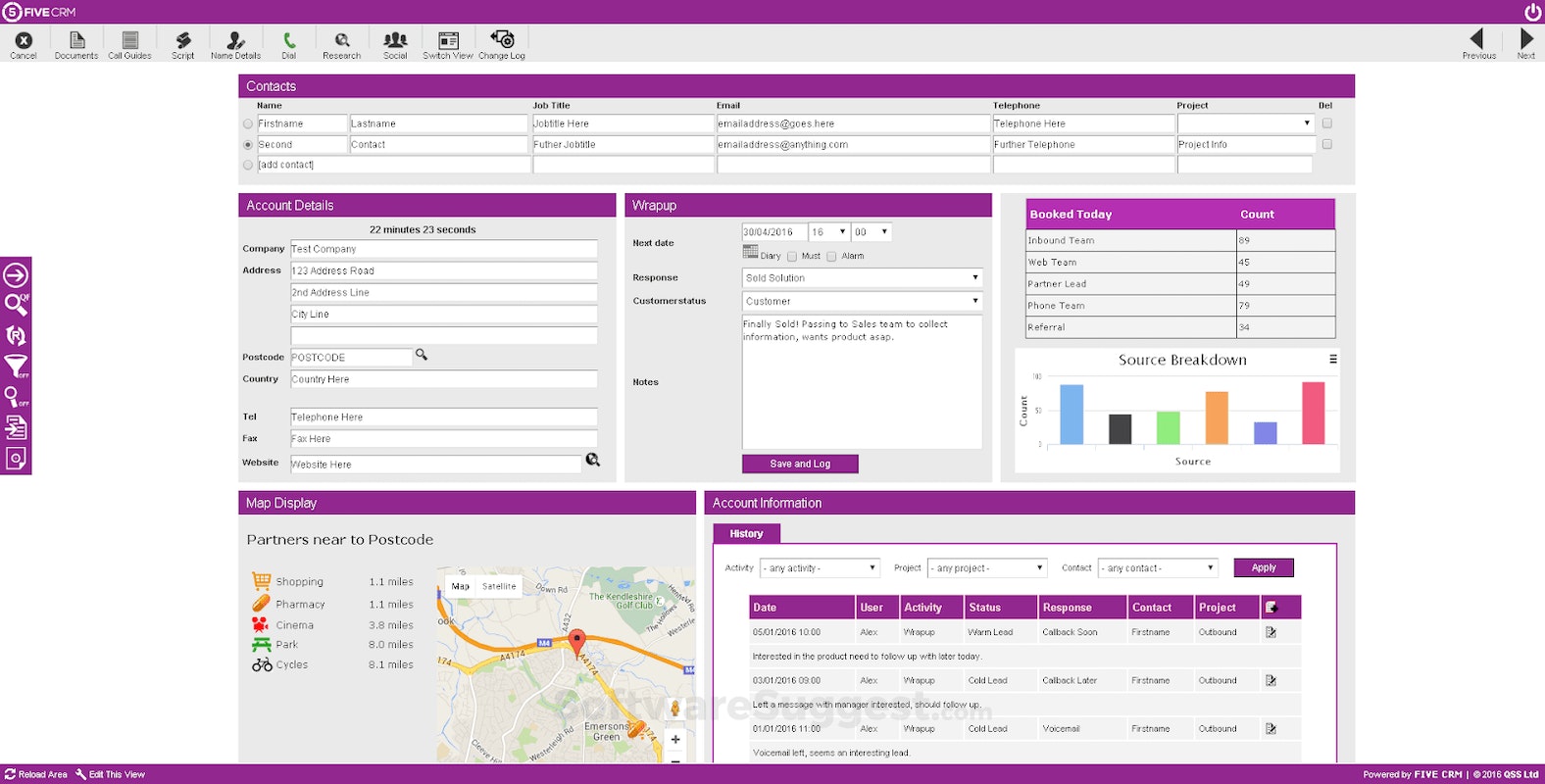
Rating: 4.4/5.0 (G2)
Key Features:
- Complete customization: You can seamlessly tailor FiveCRM's interface and functions to align with your company's distinct workflows.
- Intelligent automation features: FiveCRM streamlines mundane, repetitive tasks like data entry, freeing you to concentrate on sales and providing quality customer service.
- Responsive analytics and reporting: Monitor client preferences, buying behavior, and engagement patterns to tailor customer outreach and personalize engagement and support.
- Built-in marketing tools: FiveCRM’s automated and flexible email marketing feature allows you to expand your market reach and create meaningful engagements to reduce churn.
FiveCRM is the only CRM built specifically for lead generation, making it the perfect tool for acquiring new customers. The software offers robust features, including a highly customizable and user-friendly interface, perfect for teams of all sizes.
FiveCRM makes it easy to reduce subscription churn through personalized interactions, and its comprehensive range of functionalities and robust integrations ensure that your customers receive timely assistance and have a positive experience.
The platform’s built-in telemarketing and native app builder enable you to easily create custom applications for managing calls, leads, and contacts. Plus, FiveCRM's competitive pricing is simple and all-inclusive. It allows you to choose based on seats, starting at $70 per seat monthly or $63 per seat if billed annually.
2. Microsoft Dynamics 365
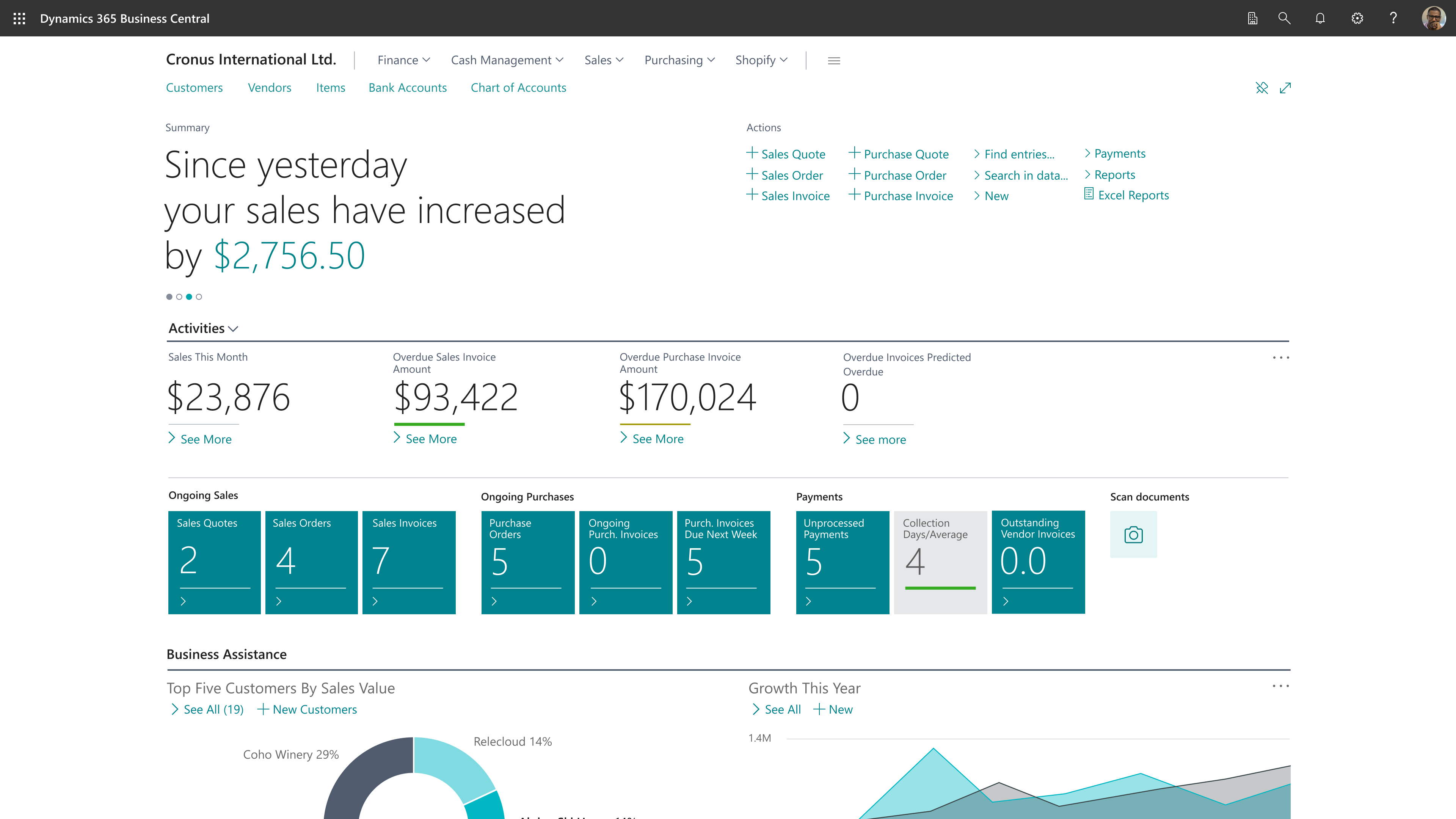
Rating: 4.3/5.0 (Gartner)
Key Features:
- Improve customer insights with data visualization: Gain a deeper understanding of your customers and leverage AI to make informed decisions for your next move.
- Easily connect sales and marketing: With Dynamics 365, you can connect your sales and marketing teams to lead customers down the pipeline faster and increase visibility into customer needs.
Microsoft Dynamics 365 is a robust cloud-based solution that provides a unique and differentiated experience with its process flow user interface. Compared to other CRMs like SugarCRM, Dynamics 365's mature, end-to-end platform offers complete business solutions. It empowers employees with practical tools to boost productivity, strengthen customer relationships, and drive business growth.
Microsoft Dynamics 365 offers a flexible pricing model based on the specific needs of businesses. The pricing varies depending on the number of users, modules required, and deployment options (cloud or on-premise).
3. SugarCRM
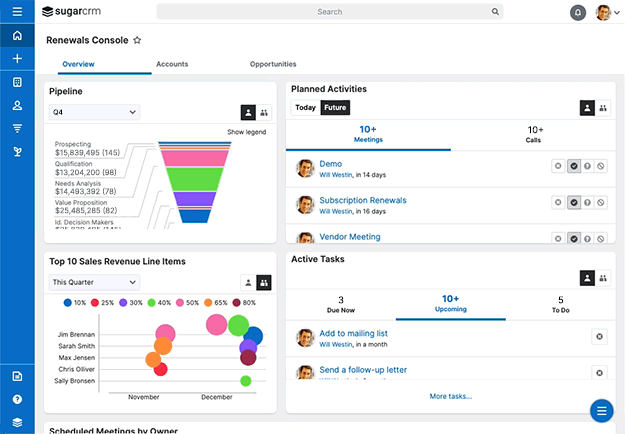
Rating: Review not available
Key Features:
- AI-powered campaigns: Use the AI lead-interest analysis to create personalized, dynamic campaigns to increase lead velocity.
- Boost retention: Improve customer loyalty and cultivate lasting connections by connecting with prospects and customers at the ideal moment.
SugarCRM allows you to maximize your reach and conversions by creating strategic content and campaigns. Compared to other CRMs like Zoho, SugarCRM has powerful customization options and countless add-ons. Its marketing automation tools allow you to predict and meet customer needs, so you can take control of your marketing strategies, deliver personalized content, and exceed customer expectations.
Pricing plans start at $49 per user/month for a minimum of three users. For larger companies with 10,000 contacts, it begins at $1,000 monthly for unlimited users if billed annually.
4. Salesforce

Rating: 4.3/5.0 (G2)
Key Features:
- Lead management: With Salesforce, you can improve lead management and track the success of your marketing strategies across various channels, including social media.
- Forecast management: Track leads, conversion rates, and every aspect of your sales and marketing pipeline with Saleforce's forecast management features. Stay informed on your team's performance through personalized dashboards, advanced reporting tools, and forecasting reports.
Salesforce CRM empowers your SaaS company to easily capture leads from multiple sources and guide them through sales. It competes with the top CRM tools like HubSpot in terms of advanced marketing automation features. Salesforce enables you to create highly targeted campaigns, prioritize leads, and closely monitor performance.
Pricing for Salesforce depends on your specific needs. For example, Salesforce Sales Cloud starts at $25 per user/month when billed annually. You can also take advantage of a free trial.
5. Pipedrive

Rating: 4.2/5.0 (G2)
Key Features:
- Flexibility with custom fields: Enhance your CRM system's functionality with customized fields. Don't settle for default options; Pipedrive's flexible system allows you to easily organize and filter data using single or multiple options and numerical data.
- Customizable feature modules: Streamline your experience by switching off unnecessary features. Toggle modules on and off, eliminating distractions and optimizing your sales processes.
Pipedrive is a customizable and user-friendly tool that simplifies sales, enhances productivity, and drives revenue growth. Stay on top of your workflow easily, identify bottlenecks, and swiftly take action to maximize efficiency.
Price plans start at $14.90 per user/month when billed annually. The Power plan, designed for larger teams with flexible collaboration and support, starts at $64.90 per user/month when billed annually.
6. Monday sales CRM
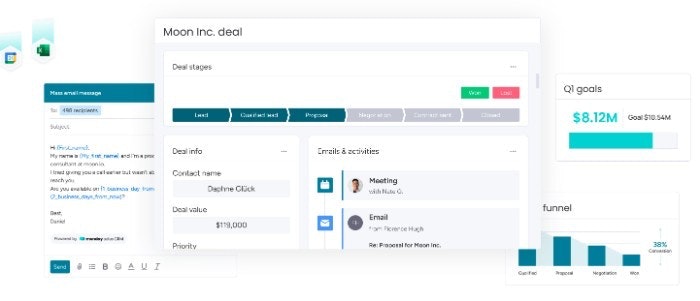
Rating: 4.6/5.0 (G2)
Key Features:
- Customization options: This platform is flexible, intuitive, and highly customizable. No programming knowledge is needed; you can tailor it to your needs without developers.
- Workflow automation features: Eliminate tedious, manual tasks and boost your success rate with automated lead assignments, meeting reminders, and notifications for lead activities.
monday sales CRM is the ultimate productivity tool for optimizing workflows, improving efficiency, and fostering seamless collaboration. The user-friendly interface allows you to manage deadlines and deliverables effortlessly, with automation features that eliminate mundane tasks.
Other features include robust contact management, lead management, customer onboarding, and sales pipeline development. monday sales CRM pricing starts at $10 per seat/month if billed annually.
7. Zoho CRM
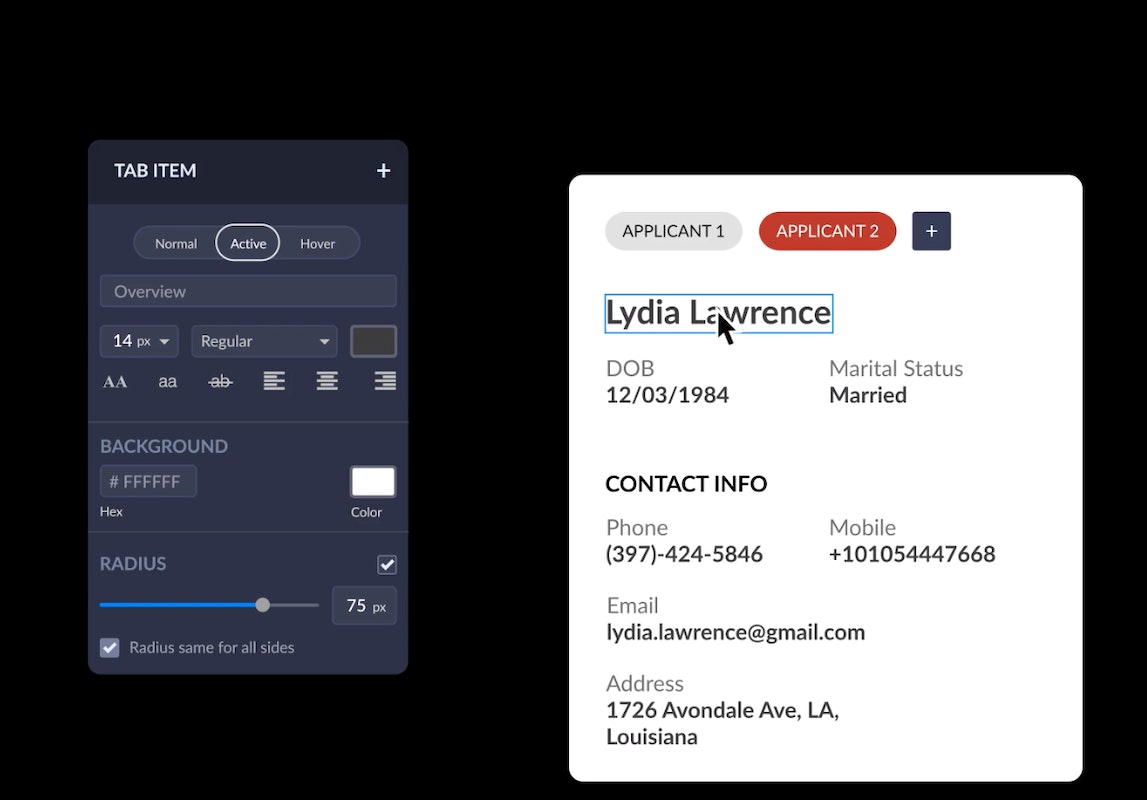
Rating: 4.0/5.0 (G2)
Key Features:
- Robust lead management: Capture leads easily, prioritize high-converting leads, and follow up seamlessly with detailed contact information.
- Workflow automation: Discover the power of automating every step of your workflow, from lead follow-ups to field updates.
Zoho CRM is one of the top CRM solutions for managing client interactions, streamlining tasks, and analyzing sales data. With features like lead and contact management, sales forecasting, workflow automation, collaboration tools, and mobile access, Zoho CRM has everything you need to enhance productivity.
Zoho CRM offers a free trial. If you wish to upgrade, pricing starts at $14 per user/month when billed annually. Other pricing plans exist, including Professional, Enterprise, and Ultimate.
8. Insightly
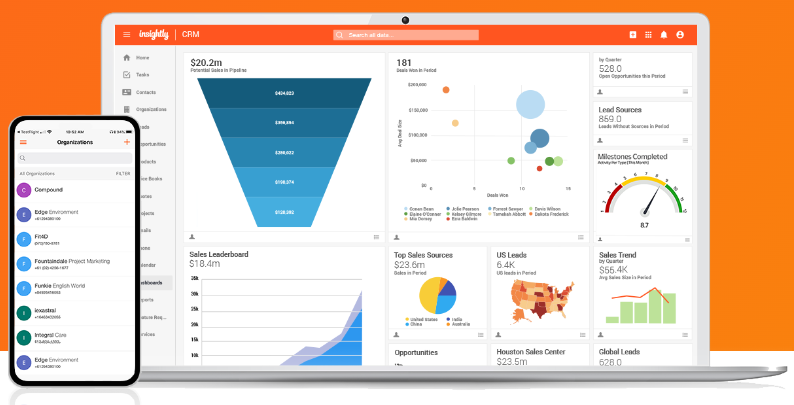
Rating: 4.2/5.0 (G2)
Key Features:
- Marketing and lead automation capabilities: Tap into Insightly's email marketing and lead management automation capabilities to attract and convert new leads.
- Sales force automation: Streamline your contact and account management, manage your opportunities and pipeline effortlessly, and stay on top of tasks and activities.
Insightly streamlines lead management and tracks opportunities for SaaS. With Insightly's robust project management capabilities, your company can easily centralize project information, foster collaboration among team members, and maintain impeccable organization.
Other standout features include personalized customer journeys, customer service portals, and hundreds of integrations with other SaaS platforms.
With plans starting at just $29 per user/month, Insightly offers an affordable CRM solution for SaaS operations of any size.
9. Nimble
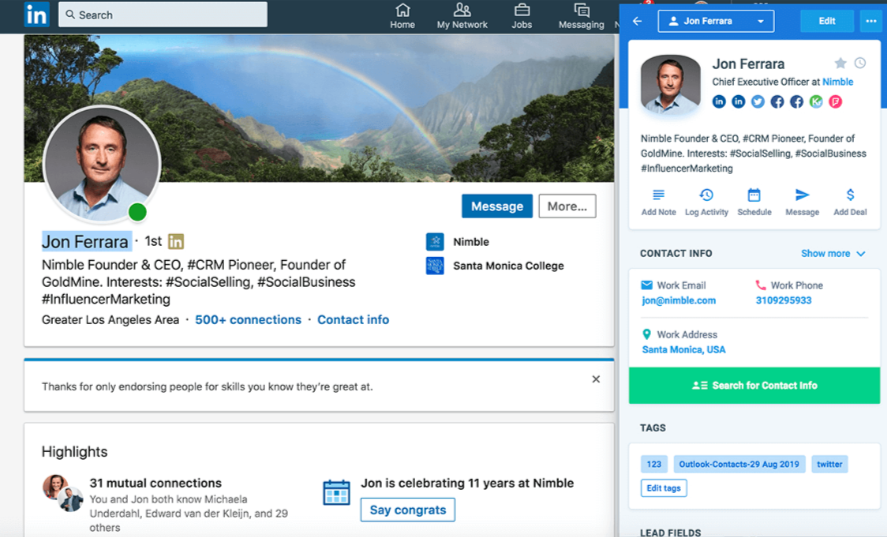
Rating: 4.5/5.0 (G2)
Key Features:
- Unified contact data: A complete view of customers and leads makes finding contact details and tracking the team's interactions simple.
- Social media integration: Nimble CRM offers a unique social scrape feature and auto-aggregation capability, allowing your SaaS company to gain valuable insights into your audience.
Nimble simplifies contact management with its centralized database and search functionality. With Nimble, you can efficiently organize, categorize, and access relevant contact information thanks to seamless integrations with Google Workspace and Microsoft 365. These integrations allow you to sync contact data, emails, and calendar events easily.
Plus, Nimble offers features such as in-depth relationship management, segmentation, workflow automation, and complete pipeline management. You can choose from a range of flexible plans, starting at just $24.90 per user/month when billed annually.
10. Oracle NetSuite CRM
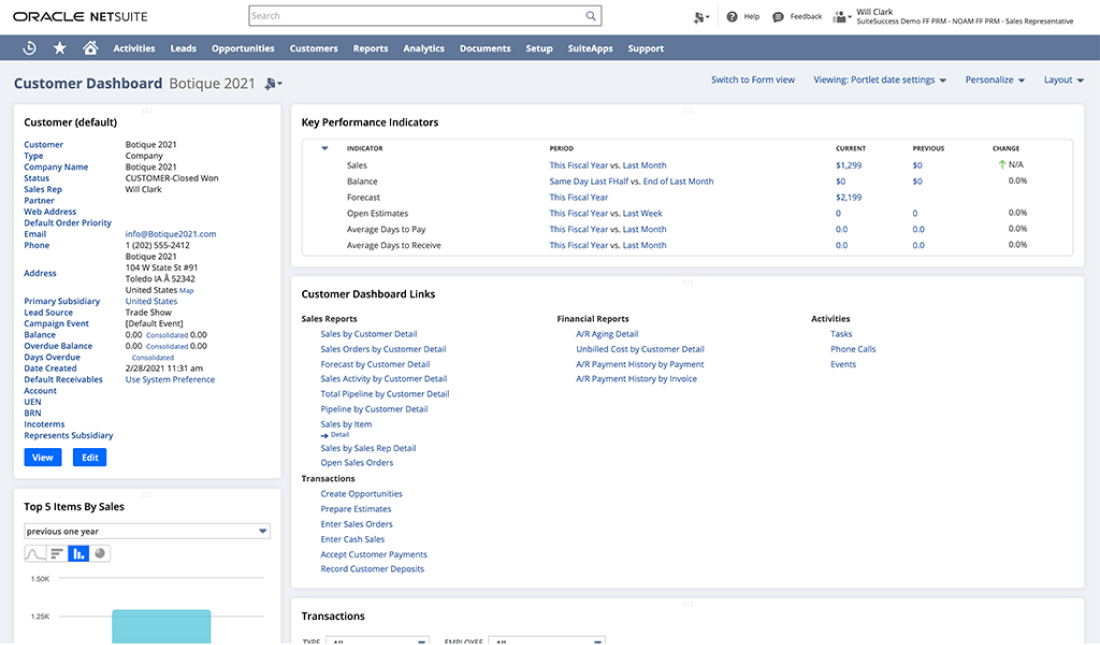
Rating: 4.3/5.0 (Gartner)
Key Features:
- Sales force automation: With built-in sales force automation, you can fully integrate your sales processes, from the opportunity to the upsell. Plus, your sales team gets full visibility at every stage.
- Marketing automation: You can easily build and measure the impact of marketing campaigns with NetSuite. This provides the insights you need to meet prospective customers where they are and convert them into loyal users.
NetSuite CRM is a cloud-based solution that empowers your business to gain real-time, comprehensive insights into your customers. With NetSuite CRM, you can optimize every stage of the customer lifecycle, from initial contact to upselling and cross-selling. Other features include customer service management and robust reporting and analytics capabilities.
Pricing for NetSuite is custom based on your needs. For more information, you'll need to reach out to the sales team.
Drive Your Business Development & Reduce Churn With FiveCRM
Choosing the right CRM software can supercharge your SaaS company's growth by helping you boost workflow efficiency, gather new leads, and retain existing customers.
FiveCRM supports you in streamlining your SaaS operations through powerful automation tools, robust customization, integrations, and built-in marketing tools. See how FiveCRM can drive your business growth by booking a demo today!
FAQs: CRM Software for SaaS Companies
Q: What is a CRM for SaaS companies?
A: A CRM (Customer Relationship Management) for SaaS (Software-as-a-Service) companies is a system that helps these companies manage their online acquisition strategies. CRMs offer features that streamline customer interactions, manage lead pipelines, and track Key Performance Indicators (KPIs) to fuel growth-oriented strategies. They assist sales and marketing teams in retaining existing customers by enhancing their experience, ultimately reducing churn rates and increasing revenue.
Q: Why do SaaS companies need a CRM?
A: SaaS companies primarily acquire customers online. However, acquisition is only half the challenge; retention is equally crucial. Given the subscription-based model of SaaS services, customers can cancel their subscriptions at any time. CRMs help SaaS companies manage online acquisition, build customer relationships, reduce churn, and provide personalized services and support. This personal touch improves customer satisfaction and builds brand loyalty, making CRMs essential for SaaS companies.
Q: What features should SaaS companies look for in a CRM?
A: SaaS companies should prioritize CRMs that offer cohesive data integration, a comprehensive view of customers, sales pipeline management, and robust integrations with their current tech stack. Other essential features include customization options, workflow automation, and in-depth reporting.
Q: How should SaaS companies evaluate CRM pricing?
A: SaaS companies often operate on fluctuating budgets. When evaluating CRM pricing, they should consider the flexibility of the platform's pricing structure. Important questions include whether the pricing plan is fixed or customizable, the ability to add or remove users and features, and any hidden costs like setup fees or data migration charges.
Q: How important is customer support when choosing a CRM for SaaS?
A: Customer support is crucial when selecting a CRM. SaaS companies should assess whether the CRM offers live chat, email, phone, or self-service support channels. It's also essential to check response times and if support is available across different time zones.
Q: Which are some of the top CRMs for SaaS companies in 2023?
A: In 2023, some of the top CRMs for SaaS companies include FiveCRM, Microsoft Dynamics 365, SugarCRM, Salesforce, Pipedrive, monday sales CRM, Zoho CRM, Insightly, Nimble, and Oracle Netsuite CRM.
Q: How can a CRM benefit a SaaS company's marketing efforts?
A: A CRM can supercharge a SaaS company's marketing efforts by providing tools for lead management, tracking the success of marketing strategies across various channels, and improving lead management. CRMs also offer features like AI-powered campaigns, marketing automation, and social media integration, enabling SaaS companies to gain valuable insights into their audience and create strategic content and campaigns.
Q: How does a CRM help in reducing churn for SaaS companies?
A: A CRM aids SaaS companies in reducing churn by streamlining customer interactions, managing lead pipelines, and tracking customer interactions. By providing personalized services and customer support, CRMs enhance customer satisfaction, build brand loyalty, and help SaaS companies retain customers for the long haul.
Q: Are there CRMs specifically designed for lead generation in SaaS?
A: Yes, some CRMs, like FiveCRM, are specifically built for lead generation, making them ideal tools for acquiring new customers for SaaS companies. They offer features that enhance client relationships, track leads effectively, and generate insights for data-driven decision-making.
Q: How can SaaS companies ensure the security and compliance of their CRM?
A: SaaS companies should choose CRMs that adhere to data protection regulations and provide robust security features. It's essential to verify the CRM's compliance certifications and ensure that it offers features like encrypted data storage, secure access controls, and regular security audits.
Michael King says...
"I can’t think of a time where a client has requested something that we weren’t able to do with FiveCRM. Unlike most systems, it has a lot of flexibility."

Managing Director, Senior Response
JAINE HUSBANDS SAYS...
“Each client, and each of their campaigns, has its own unique specifications. We essentially needed to set up mini CRMs on one platform to meet those requirements.”

Operations Director, Team Marketing
Why wait?
Start improving your outbound efficiency now, with the most customizable Sales solution on the market.